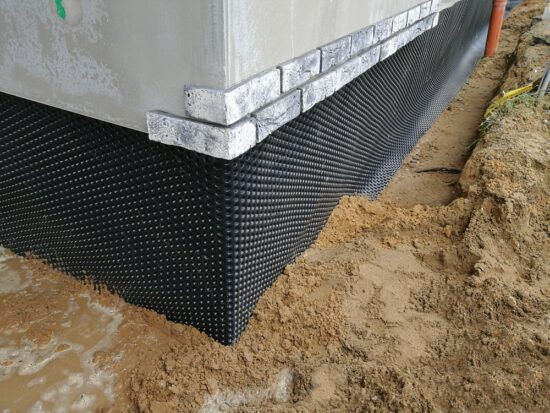
Is your basement always damp or musty? Water can cause serious damage to your home. Leaks, mold, and cracks can weaken the foundation.
How can you keep your basement dry and safe? Waterproofing helps protect against flooding and moisture issues. It also improves air quality and prevents costly repairs.
A well-protected basement adds value to your home. Learn the best ways to keep water out and maintain a dry space. These simple strategies will help you safeguard your basement for years.
Identify and Fix Cracks
Small cracks let water seep into your basement. Check walls and floors for any gaps or holes. Use sealants to fill small cracks before they grow larger.
If the cracks are wide, a professional may need to repair them. Water entering through cracks weakens the structure over time. Regular inspections help prevent leaks before they become big problems.
Fixing cracks early saves money and protects your basement. A strong foundation keeps your home safe and dry.
Improve Drainage Around Your Home
Poor drainage can lead to basement water problems. Make sure gutters direct water away from the house. Downspouts should extend several feet from your foundation.
Sloping the ground away from the house helps water flow outward. If water pools near the basement, it increases the risk of leaks. French drains or gravel trenches help control excess moisture.
Keeping water away from your home is the best defense. Good drainage reduces the chances of basement flooding.
Install a Sump Pump System
A sump pump removes water that collects in your basement. It sits in a pit and pumps out water when levels rise. This prevents flooding during heavy rain or snowmelt.
Choose a battery backup pump in case of power failure. Regular maintenance keeps your sump pump working properly.
Clean the pit and check for clogs to avoid malfunctions. A reliable sump pump gives you peace of mind. It is a key part of basement waterproofing.
Use Waterproofing Coatings and Sealants
Waterproof coatings add a protective layer to basement walls. These coatings stop moisture from entering through small pores. Apply them to interior and exterior walls for extra protection.
Sealants block tiny gaps where water can sneak in. Some products also prevent mold growth and damp smells. Choose high-quality coatings to improve durability.
Reapply coatings every few years to maintain effectiveness. A properly sealed basement stays dry in all seasons.
Maintain Your Plumbing System
Leaky pipes can cause basement water damage. Inspect pipes and fix leaks immediately. Check appliances like washing machines and water heaters for drips.
A burst pipe can lead to serious flooding. Installing a water alarm helps detect leaks early. Insulating pipes reduces the risk of freezing in winter.
Keep your plumbing system in good shape to prevent damage. A well-maintained system keeps your basement free from water problems.
Consider These Effective Strategies for Waterproofing a Basement
Waterproofing your basement protects your home from serious damage. Small leaks can lead to mold, cracks, and costly repairs. Simple steps like fixing cracks, improving drainage, and using sealants help keep water out.
A sump pump adds extra protection during heavy rain. Regular plumbing maintenance prevents leaks and moisture buildup. A dry basement is safer and healthier for your family.
Protect your home by using these strategies today. Keeping water out saves money and prevents future problems. Start waterproofing now and enjoy a dry, secure space.
Did you find this article helpful? If so, check out the rest of our site for more informative content.
